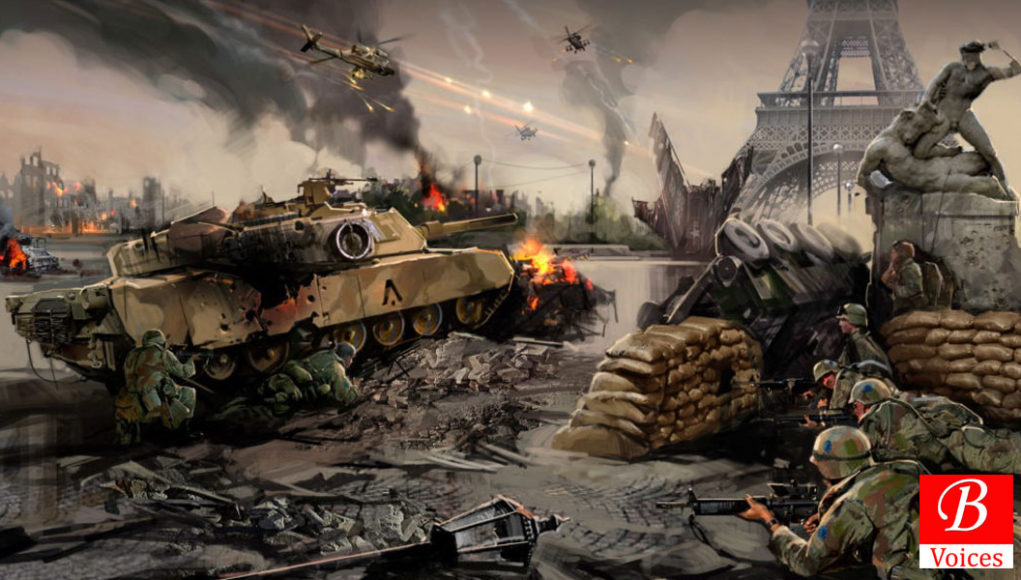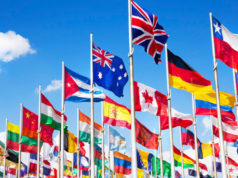Tahira Khan
What is the main cause of any insurgency, war, conflict, or ethnic hatred? There are many explanations for such critical circumstances involving factors of religion, ideology, historical roots, nationalism, etc. According to Chris Hedges, an American journalist, and Author, political violence is manufactured mostly by the degradation of civil societies. Degradation of societies starts when there is less place for civility and more space for violent activities. Besides, during war or conflict, societies are usually run by gangsters who spread fear to claim their authority over the local masses. In addition to this, Chris Hedges describes that these gangsters who rise from the bottom of societies even terrorize people who support them.
However, there is a great deal of scholarship detailing how various factors like religion, culture, civilization, and ideology leads to war or conflict. Chris Hedges takes a different view while analyzing the atmosphere of conflicts. He suggests that violence has less appetite for factors like ideology and religion but more appetite when it comes to gangsters, warlords, terrorists, etc. If conflicts are largely manufactured, then why there is debate around the other factors? It is because people readily accept explanations involving superficial explanations or cosmetic terminology and ignore the in-depth analysis of the situation.
Consequently, in such societies, people accept ideologies irrelevant to the ground realities. On the other hand, scholars and media also take such kind of explanations along with the politicians. This is due to their inability to analyze the situation or expose the hollowness of myths. During times of conflict, opposing sides spread myths of every kind involving religion, ideology, historical roots, and even the mantra of democracy. How can a gangster start a conflict with any ideological mantra? It is because of the people, scholars, and media personnel who buy such stances or lack the perspective in response.
The same is the case with the conflict in Afghanistan. It all started with the myth to end terrorism. Did we get what we started in Afghanistan? Probably, No. It is mainly because of two reasons. Firstly, war is not a solution to anything. Secondly, people buy myths and don’t probe into ideological and analytical fallacies. Now, the country is ruled more by gangsters who are accused of gender apartheid than having a government with a democratic setup. Besides, the people are encountering fear more than religious or ideological clashes. There may be explanations involving historical roots but are they relevant in the context of the current Afghanistan crisis? Again, No. How can the current Taliban government and their so-called ideological veneer find any historical match?
Following that, there is a great deal to discuss why people buy myths and don’t go for sensory reality. Myths help people to make sense of lost lives. It somehow gives meaning to the destruction and violent clashes of past, present, and future. Consequently, it justifies human brutality like the way Thomas Hobbes justified authoritarianism. In another way, one can say that Myths allow us to live in a Hobbesian jungle of the 21st century with a bunch of gangsters. Take for instance the case of Afghanistan. There is more tilt toward the narrative that defines how the Taliban broke the chain of slavery and found place in a human society rather than shedding light on a series of past disasters and terror tendencies.
In particular, Chris Hedges defines this kind of situation in his work titled “War is a Force that Gives Meaning.” In this book, he describes the significance of myth that allows human sense to avoid acknowledging human powerlessness or the ordinance of leaders. Most importantly, he suggests that myths help people to believe that they are marching toward nobility and progress. Unfortunately, while analyzing the conflict situation or opposing sides, people become deaf and dumb. They may see or sense what is fed to them. They may see a high moral purpose in wars or conflicts but don’t bother to probe the other side where morality is more corrupted and idealism is lost as some collateral damage along with the actual purpose of war.
David Hume wrote in ‘A Treatise on Human Nature’ which is much more relevant to the current status of people believing in myth than reality.
“When our nation is at war with any other, we detest them under the character of cruel, perfidious, unjust, and violent. But always esteem ourselves and our allies as equitable, moderate, and merciful. If the general of our enemies is successful, its with difficulty we allow him the figure and character of a man. He is a sorcerer. He has a communication with daemons; as is reported of Oliver Cromwell, and the Duke of Luxembourg: He is a bloody-minded and takes pleasure in death and destruction. But if success is on our side, our commander has all the opposite good qualities and is a pattern of virtue, as well as of courage and conduct. His treachery we call policy: His cruelty is an evil inseparable from war. In short, every one of his faults we either endeavor to extenuate or dignify with the name of that virtue, which approaches it. It is evident the same method of thinking runs thro’ common life.”
The writer holds an M.Phil Degree in South Asian Studies from the University of Punjab. She can be reached on Twitter @TahiraGhilzai.
Click here to read previous articles of the writer.
Disclaimer: Views expressed in this article are those of the writer and Balochistan Voices does not necessarily agree with them.
Share your comments!








